It’s not that Hollywood forgot about Parker Posey, it’s more that it just didn’t quite know what to do with her. “I felt like I didn’t have a place in the culture of entertainment,” she tells me as we sit in Washington Square Park in Manhattan, her dog Gracie nestled on the side. Her consignment to the sidelines was maddening; this, after all, was an actor dubbed “queen of the indies” by Time magazine in 1997, who had broken out with attention-demanding roles in Dazed and Confused and Party Girl, and displayed an infectious comic energy in everything from Best in Show to Scream 3. And yet, she says, “it was hard to find a job that would pay, so I thought maybe I’d make something”.
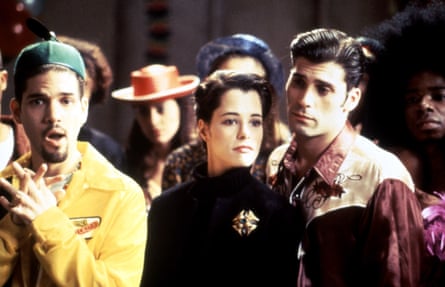
That something is You’re on an Airplane: A Self-Mythologising Memoir, a book of warm, witty, eccentric tales from the 49-year-old star’s life, told as if she’s sitting next to you on a flight. It is why we’re sitting here on a sunny July afternoon, just blocks from her apartment in Greenwich Village, but it is not easy for her to talk about – the process of writing is still fresh. “It’s like a postpartum kind of feeling, like: ‘What was that all about?’” she says. “It still feels like it’s going on.”
In the book, Posey often refers to the lives of female movie stars from the golden era (the cover sees her wearing a Norma Desmond-esque turban), and in person there’s something that feels out of sync with the era, from her outsized sunglasses to her shock when I explain what double-screening is (“So you do that? How old are you?”). Posey is a hugely engaging presence, but perhaps also a confounding one for demographic-obsessed Hollywood execs looking for someone easier to define.
“Are you one of those interviewers that has, like, a list of questions that you wanted to ask me?” she asks as we nip into the local pharmacy to pick up some lightbulbs. She jokingly suggests that I make a note of the brand for the piece and, throughout the day, she often parodies the idea of a celebrity profile, offering up amusingly silly ideas about how I might frame the interview (“Ben are you going to quote this? I’m just too tired to put on mascara,” she says while preparing for the photographer, affecting a faux-diva character).
“I’m kind of talked out, I’m sorry,” she says early on, before telling me she’s not really in the right mindset for an interview. If anything, she’s more in the mood to just hang out and have fun, and there’s a delicate, gentle wrestle between us as we try to reconcile our two goals for the day.
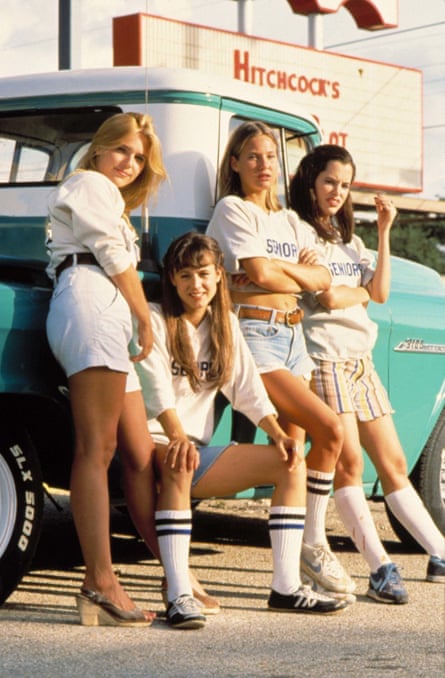
We move between the park, a bubble-tea spot, a naan taco cafe and the streets around her apartment. There’s a whole chapter in the book about Posey’s decision to sell her place on Lower Fifth Avenue because she “didn’t want to do a CSI: Neverland” just for the money. She now rents from friends: a spacious spot on a picturesque Village street, with a spiral staircase up to a guest room and small patch of roof. It’s fitted out with thought, vintage furniture picked up along the way, the end result acting as an extension of her singular personality.
In writing, Posey is refreshingly honest about the difficulties she has faced in an industry that didn’t know where to place her. This has often made it a financially precarious career. Despite acclaimed arthouse work in Noah Baumbach’s Kicking and Screaming and The House of Yes, that “Queen of the Indies” label became something of a curse. “I’ve gotten some little parts in big films,” she says. “Something new would come up, like a three-scene part as the wife of Matt Damon in some big movie and I’d go: ‘God, why didn’t I get cast in that, just tell me what the feedback was, what did they say?’ and the response was: ‘You’re too much of an indie queen’. So my brand, or what I was called, just separated me from the work.”
Those “little parts in big films” included villainous, scene-stealing turns in Superman Returns, Josie and the Pussycats and Blade: Trinity. Posey also took small-screen roles in Louie, Will & Grace and The Good Wife, and became part of the Christopher Guest troupe, showing off her improv skills in a string of comedies, including Waiting for Guffman, Best in Show, and most recently Mascots. In the book, she also references the ones she turned down, such as an Anaconda sequel (“I didn’t want to wrestle with snakes or be in wet clothes while at work”) and Girl, Interrupted (“I remember saying, ‘Who cares about a bunch of depressed white girls in the 60s? What about civil rights?’”).
Work became increasingly hard to find. Living in New York, she was isolated from the intense competition of LA, although she rejects that characterisaton of the industry. “It’s more like roulette because it’s not something you really have control over,” she says. “That’s the great and terrifying thing about it.”
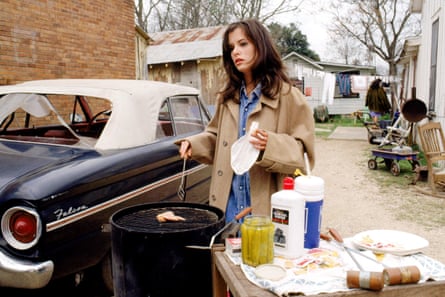
Despite Posey’s old Hollywood vibe, she also seems to reject of some of the more ostentatious elements of stardom. As we enter her apartment, I ask if it’s a no-shoes kind of place. “Oh please, you can do whatever you want!” she says, before telling me she’s never been able to “master” having an assistant, especially a male one. She says she was spoken down to by a previous employee. “I would rather my back was out and have my friends help me than be subtly undermined, especially being a woman,” she says.
Posey wrote her book just as the #MeToo movement was gaining ground, and while it avoids digging into the darker side of the industry, she is no stranger to workplace sexism. “I’m good with denial or moving on because I’m a creative person and I just want to move on to the next thing,” she says. “The stories that I’ve gone through, I’m sure you could ask some of my friends. But I don’t really remember them.”
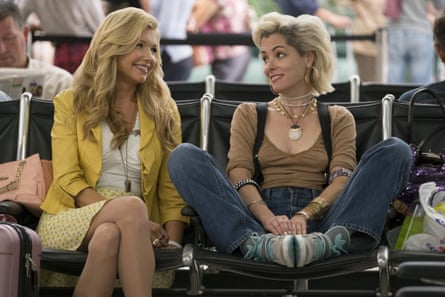
She refers to the outpouring of women’s stories as “heartbreaking” but remains wary of delving deeper. Just that morning, the New York Post translated a quote of hers about working with Woody Allen into the headline “Why Parker Posey actually likes working with Woody Allen”. I ask about Allen, the actors who have spoken out against working with him and his status as an industry pariah, and our gentle wrestle threatens to become more of a duel.
“I’m an actor,” she says, upset by the shift in conversation. “I don’t feel like I should be asked these questions and to be political in a way that the media expects.”
She mentions the Post article, her fear of “callout culture” and what she sees as the pervading meanness that surrounds us. “I’ve written something that isn’t mean and I try my best to protect myself and now I don’t feel protected because you asked this question and it feels like a manipulation,” she says, facing me on a now uncomfortably close couch.
“I just feel a little diminished and I’ve had enough of that,” she continues. “I wrote a book because I had to do something else. I didn’t think I would work again.”
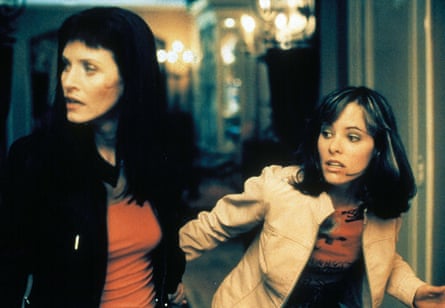
She is, after all, a survivor of a difficult, ageist, sexist industry and knows how easily people in the public eye can fall. Until recently, she was being offered roles for scale, the minimum an actor can get paid, and was often expected to fly herself out to far-flung locations “to do these kind of parts you would expect from someone with less experience”. She sighs, “It was just kind of wild.”
In the book, she describes being offered a role in an exploitative, torture-porn thriller, and she tells me about recent offers involving nudity “in a very retro, Porky’s kind of way” that she didn’t perceive as “grown-up”. But the publishing deal coincided with bagging a key role in Netflix’s splashy remake of the 60s sci-fi classic Lost in Space, the second season of which she will start shooting in Vancouver in September. She is passionate about her character (the original series was a favourite as a child) and it is the sort of dependable role she has been grafting for (she is also easily the show’s most compelling element).
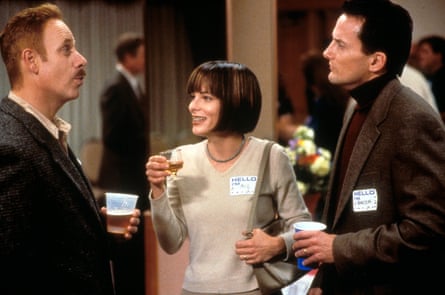
When the photographer arrives, the tension lifts, and she poses light-heartedly in a white and cream dress, with a Joan Collins picture book, and with her dog around Washington Square Park. In the book, she mentions that her yearning for conversation has often led her to dine with strangers. Throughout the day, she has been recommending local restaurants to me and, as I leave, she asks for my email address. I return to the office to receive a long, thoughtfully composed list, and three days later, she has invited me to her book party.
I see her that night at the event, at a members club in midtown, surrounded by friends who she mentions throughout the book. In her speech, she talks about the titular airplane acting as a space “between nostalgia and reinvention” and she is visibly overwhelmed while looking out on those who have supported her throughout a tough career. She told me that writing the book was her way of taking matters into her own hands and it is filled with ideas for new stories, characters, shows and movies that she has continued to pitch to agents, producers and even advertisers. Hollywood might have struggled to know what to do with Posey but instead, she has figured out what to do with herself.
You’re on an Airplane: A Self-Mythologising Memoir by Parker Posey is published by Virago (£18.99). To order a copy for £16.14 go to guardianbookshop.com or call 0330 333 6846. Free UK p&p over £10, online orders only. Phone orders min p&p of £1.99
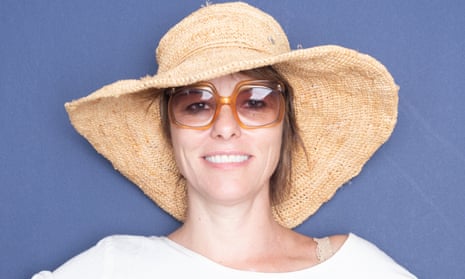
Comments (…)
Sign in or create your Guardian account to join the discussion